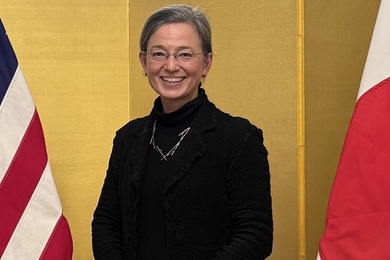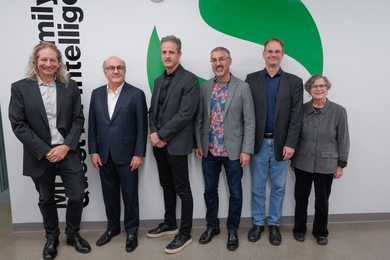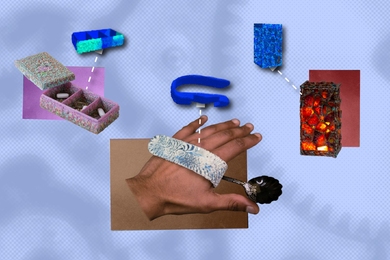WILMINGTON, Del./CAMBRIDGE, Mass., Sept. 14, 1999 -- DuPont and the Massachusetts Institute of Technology (MIT) have signed a memorandum of understanding to form a $35 million alliance to advance research and education in materials from biotechnology that have a variety of applications. The five-year alliance will begin Jan. 1, 2000.
This alliance will support projects that draw upon the science, engineering, and business expertise at MIT and that extend and better leverage the reach of DuPont's scientific expertise in the areas of biology, genetics, bioinformatics and catalysis. It will bring together DuPont's and MIT's strengths in materials, chemical, and biological sciences to develop new processes for new materials directed at bioelectronics, biosensors, biomimetic materials, alternative energy sources and new high value materials. Through the alliance, DuPont also will work with the MIT Sloan School of Management to define new business models for these emerging technologies.
"For more than 80 years, DuPont and MIT have worked in scientific collaboration on projects that have resulted in valuable commercial applications in a wide range of markets," said Charles O. Holliday Jr., DuPont chairman and CEO. "We are pleased to be strengthening our scientific research by broadening our partnership with one of the world's pre-eminent research universities."
MIT Provost Robert A. Brown commented, "We are extremely excited about the opportunity to work together with DuPont to help shape the applications of modern biology to a new range of materials and products for the benefit of society. In addition to biology, the alliance will draw on MIT's traditional strengths in materials science, chemistry, and chemical processing and in the emerging field of bioengineering."
A steering committee co-chaired by Dr. Brown and Dr. Joseph A. Miller Jr., DuPont Chief Science and Technology Officer, will define precise research areas and projects.
MIT, founded in 1861, is well known for advancing the frontiers of science and engineering while working on practical problems that serve society. Over the years, MIT's industrial research collaborations have transferred science and technology into industry, resulting in the creation of jobs, companies, and even new industries based on new technologies. In recent years, MIT has become a leader in developing research and education partnerships with industry in fields of long term interest to MIT. The MIT-DuPont alliance, with its strategic focus at the interface of biology, materials, and engineering, continues this tradition. For MIT's 10,000 graduate and undergraduate students, industry collaborations of this type bring real-world technology and management issues into their studies.
DuPont is a science company, delivering science-based solutions that make a difference in people's lives in food and nutrition; health care; apparel; home and construction; electronics; and transportation. Founded in 1802, the company operates in 65 countries and has 92,000 employees.





